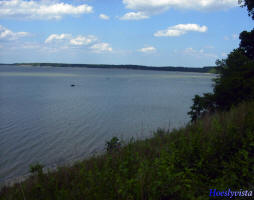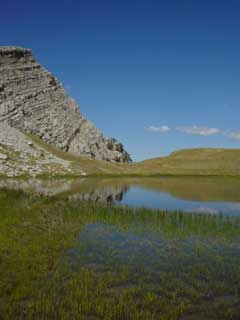 Hyperspectral data plays important role in environmental monitoring
Hyperspectral data plays important role in environmental monitoring
In cooperation with Galileo Group, UN-SPIDER's Regional Support Office in Hungary, the Karoly Robert University College, participated in an Unmanned Aerial Vehicle (UAV) flight operations and hyperspectral data collections for a NASA sponsored project to map sea grass beds and coral reefs in the Florida keys. Hyperspectral data collections can play a crucial role in environmental mapping and monitoring. The Galileo Group is an American technology company specializing in applied hyperspectral imaging.
The information contained in the hyperspectral data sets is used to establish sea grass bed location, extent and its photosynthetic production, and can play a key role in monitoring changes over time relating to environmental conditions. Over 320 gigabytes of mission data was collected over the deployment. Working together, Galileo and the RSO’s fellows operate as a consolidated team and perform a good service, which can serve as a reference for future work worldwide.
A manned sensor aircraft flown by Galileo provided concurrent hyperspectral measurements for independent cross referencing purposes. The NASA grant, known formally as "High Resolution Assessment of Carbon Dynamics in Seagrass and Coral Reef Biomes," was awarded to the UAV Collaborative, located in Silicon Valley, which managed the overall project under the leadership of Dr. Stanley R. Herwitz as the Principal Investigator. Galileo performed the airborne collection work as contractor for the UAV Collaborative.
For purposes of advancing environmental research with hyperspectral imaging and computer processing techniques, Galileo has previously established a formal collaborative relationship with Dr. Csaba Lenart, professor of the Research Institute of Remote Sensing and Rural Development, Karoly Robert University College, Hungary. The College is a UN-SPIDER Regional Support Office and conducts basic and applied remote sensing research, focusing on the applications of state-of-the-art remote sensing and GIS systems and on the development of techniques to enhance the usefulness of these systems in environmental applications. The Institute also offers a team of experienced professionals in the integration and deployment of various sensors in remote sensing through LIDAR, thermal and hyperspectral imaging technologies as well as in computer sciences (digital image processing and analysis). Working together, Galileo and the College operate as a consolidated team and perform a wide portfolio of service missions across Europe, Africa, the Middle East, Asia and the Americas.
| Contact information | n/a |
|---|---|
| News type | Inbrief |
| File link |
http://www.reuters.com/article/2012/11/26/idUS170528+26-Nov-2012+PRN20121126 |
| Source of information | UN-SPIDER via REUTERS |
| Subject(s) | HYDRAULICS - HYDROLOGY , INFORMATION - COMPUTER SCIENCES , MEASUREMENTS AND INSTRUMENTATION , METHTODOLOGY - STATISTICS - DECISION AID , NATURAL MEDIUM , RISKS AND CLIMATOLOGY , WATER DEMAND , WATER QUALITY |
| Relation | http://www.galileo-gp.com/ |
| Geographical coverage | Hungary |
| News date | 08/01/2013 |
| Working language(s) | ENGLISH |
 you are not logged in
you are not logged in





